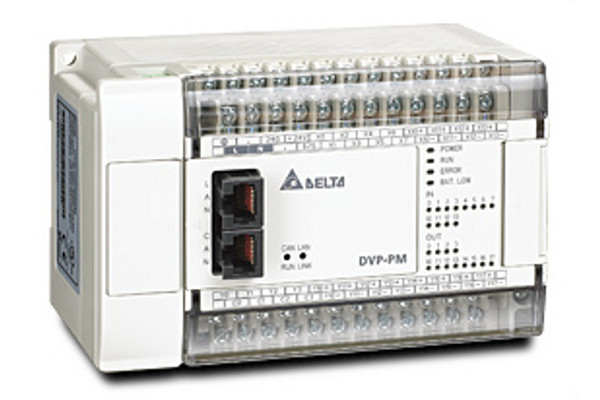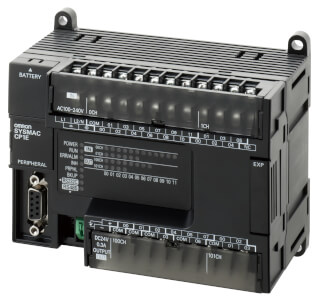PLC Controllers
- Siemens PLC
- Allen Bradly PLC
- Omron PLC
- Mitsubishi PLC
- L&T PLC
- Schneider Electric
- Delta PLCProgrammable Logic Controllers (PLCs) are industrial digital computers that are used to automate manufacturing processes and control machinery in factories, plants, and other industrial settings. PLCs are highly versatile and can be programmed to perform a wide range of tasks, from simple relay control to complex automation and process control.Key features of PLC controllers include:
- Input/Output (I/O) Modules: PLCs interface with sensors, actuators, switches, and other devices through input and output modules. Input modules receive signals from sensors and switches, while output modules send signals to actuators and other devices.
- Programmable: PLCs are programmable devices, typically using ladder logic, function block diagrams, or structured text programming languages. Programmers can write logic and sequencing instructions to control the operation of machinery and equipment.
- Modular Design: PLCs often have a modular design, allowing users to expand their capabilities by adding additional I/O modules, communication modules, and other accessories as needed.
- Real-Time Operation: PLCs operate in real-time, meaning they respond to inputs and execute control logic with minimal delay, making them suitable for time-critical applications.
- Communication Interfaces: PLCs can communicate with other devices and systems using various communication interfaces, including Ethernet, serial communication (RS-232, RS-485), Profibus, Profinet, and Modbus, allowing for integration with supervisory control and data acquisition (SCADA) systems, human-machine interfaces (HMIs), and other industrial equipment.
- Reliability and Durability: PLCs are designed to operate reliably in harsh industrial environments, with rugged construction and protection against dust, moisture, vibration, and temperature extremes.
- Safety Features: Many PLCs include built-in safety features, such as watchdog timers, redundancy, and safety-rated I/O modules, to ensure safe operation and protect personnel and equipment from harm.
PLCs are used in a wide range of industries and applications, including:
- Manufacturing: Control of assembly lines, conveyors, robots, and machining equipment.
- Process Control: Monitoring and control of chemical processes, water treatment plants, and power generation facilities.
- Building Automation: HVAC (heating, ventilation, and air conditioning) control, lighting control, and access control systems.
- Transportation: Control of traffic signals, railway signaling systems, and automated guided vehicles (AGVs).
Related Products
Customer Reviews
★★★★★ 5/5
“A review from a customer who benefited from your product. Reviews can be a highly effective way of establishing credibility and increasing your company's reputation.”
Customer Name
★★★★★ 5/5
“A review from a customer who benefited from your product. Reviews can be a highly effective way of establishing credibility and increasing your company's reputation.”
Customer Name





